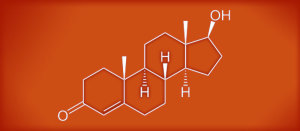Physical activity is wonderful in promoting general health and well-being. Regular exercise helps many of the body’s systems function better, boosts immune system, and improves your chances of living healthier and living longer.
Studies have found that people who perform exercise three or more times a week are at a lower risk of becoming obese, and developing diabetes and heart disease than individuals who are less active physically.
The benefits of exercise can be achieved by performing cardiovascular exercises, resistance training, yoga, meditation, or any combination of these.
Cardiovascular exercises or aerobic workouts such as walking, brisk walking, running, swimming, and bicycling strengthen your heart and lungs, and increase your stamina.
Strength training workouts use resistance to tone and build up your muscles. You may use weight machines, hand weights, or your own body weight to train your body.
Meditation and yoga exercises relieve tension, soothe nerves, and improve your breathing. For the greatest overall exercise benefits, many experts, but not all, recommend that you should perform 25 to 30 minutes of cardio activity three to four times a week or some type of resistance training activity and yoga at least twice a week.
Regular physical activity can help reduce your risk for several health conditions and improve overall quality of life.
Exercise Increases Beneficial Hormone Levels
Research shows that regular physical activity triggers your endocrine system to release “testosterone” which is a hormone that is produced in the female ovaries, male testes, and adrenal glands which are located above kidneys.
Increase in testosterone levels helps regulate metabolism, amplifies your lean body mass, lowers body fat percentage, improves your body’s ability to maintain energy, and boosts sexual libido. The secretion of human growth hormone also increases during exercise. An increase in human growth hormone helps maintain your body’s glucose level and promotes protein synthesis.
Exercise Lowers Cancer Risk
Physical activity has been shown to reduce risk for several types of cancers, including colon cancer, lung cancer, and breast cancer. Being obese increases an individual’s risk of developing certain types of cancers as fat tissue produces excess amounts of estrogen which may trigger the growth of cancerous cells.
Numerous research studies have also shown that fat cells may have other effects on tumor growth outside of the estrogen effect. Regular aerobic exercises combined with a healthy diet can help people lose weight, which in turn reduces the risk for cancer.
Exercise can help reduce inflammation, which is a contributing factor to the development of cancer. Moderate-intensity exercise such as cycling and jogging improve immune function which plays a vital role in fighting infections and cancer.
Exercise Lowers Risk for Cardiovascular Disease
It is medically proven that people who do physical activity have up to a 40% lower risk of developing cardiovascular disease and stroke. Studies show conclusively that aerobic workouts lower LDL (bad cholesterol) and raise HDL (good cholesterol) levels, it also causes your arteries to expand which makes your heart muscles to pump blood efficiently.
Cardio exercises also strengthen your heart muscles, lower blood pressure, strengthen lungs, and increase your heart’s working capacity.
Exercise Lifts Mood and Lowers Rates of Depression
 Improved self-esteem is a major psychological benefit of physical activity. When you perform exercise on a regular basis, your body releases chemicals called “endorphins” which interact with the receptors in your brain to lift mood and reduce feelings of anxiety and depression.
Improved self-esteem is a major psychological benefit of physical activity. When you perform exercise on a regular basis, your body releases chemicals called “endorphins” which interact with the receptors in your brain to lift mood and reduce feelings of anxiety and depression.
Exercise has also been shown to increase concentrations of norepinephrine, a chemical that boosts the brain’s activity to deal with existing mental tension. Exercise benefits for mental health are not limited to just mood, the physical activity is also associated with improved sleep and higher I.Q. levels.[/fusion_text]




